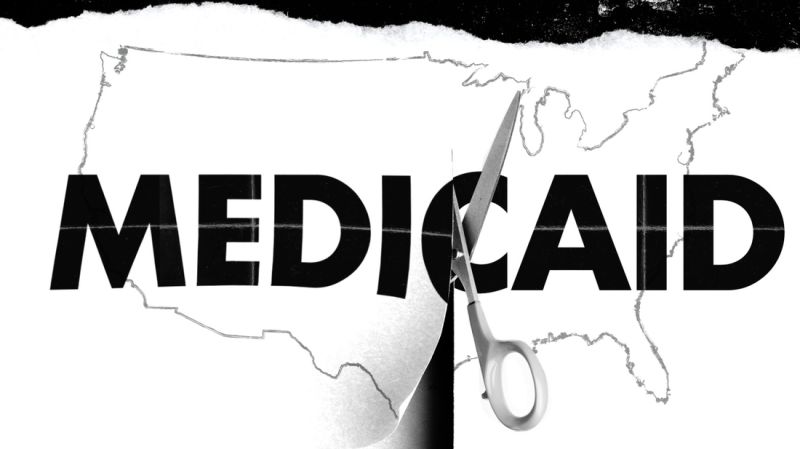The unwinding of Medicaid coverage for millions of Americans has had detrimental effects on the health and well-being of many individuals. Justin Gibbs, for example, had his coverage terminated, leading to worries about his high blood pressure medication and its potential impact on his health. While he was eventually able to pick up new prescriptions, many others were not as lucky, with nearly a quarter of disenrolled adults now reporting being uninsured. The loss of coverage has led to delays in care and medications for many, causing concerns about physical and mental health.
The unwinding of Medicaid coverage began after a relief package in 2020 prevented disenrollment during the early years of the Covid-19 pandemic. Since then, millions of Americans have had their coverage renewed, but a significant portion have been disenrolled for procedural reasons, such as not completing renewal forms. This has raised concerns among federal officials and advocates, as some individuals may still be eligible for Medicaid but have become uninsured due to procedural issues.
Renewal processes for Medicaid coverage have proven to be challenging for many enrollees, with long wait times for assistance and confusion about required documentation. Some individuals have faced difficulties due to lack of internet access or unclear requirements from their state. Assistance with renewal has varied, with some receiving help while others struggled to navigate the process on their own.
Among those who needed to renew coverage, some, like JP Peters, have faced significant obstacles in maintaining their Medicaid benefits. Peters had to seek assistance from a retired nurse to enroll in Medicare, experiencing delays and uncertainty in the process. Due to these challenges, he postponed necessary medical treatment, causing additional stress and inconvenience.
The unwinding of Medicaid coverage has highlighted the importance of streamlining the renewal process and providing adequate support for enrollees. Many individuals have struggled to navigate the system and maintain their access to essential healthcare services. As millions of Americans continue to face these challenges, there is a need for improved communication, assistance, and outreach to ensure that those who are eligible for Medicaid can maintain their coverage without disruptions.
Overall, the unwinding of Medicaid coverage has had significant repercussions for millions of Americans, leading to delays in care, concerns about health, and challenges in navigating the renewal process. While some individuals have been able to overcome these obstacles with support from friends or healthcare providers, many others continue to face uncertainty and struggles in maintaining their coverage. Addressing these issues will require a coordinated effort from federal, state, and local agencies to ensure that all eligible individuals can access the care they need without disruptions or barriers.


